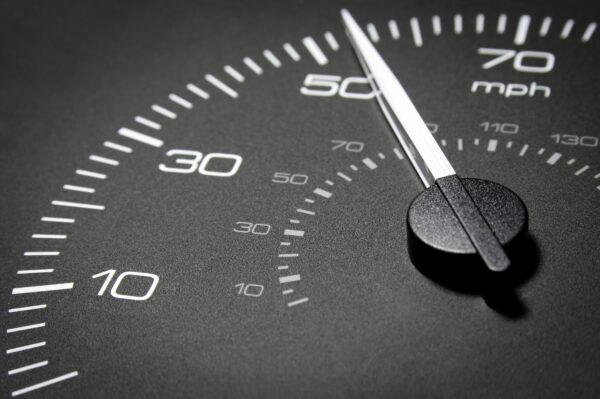
Since engine misfires are a serious concern and several factors could cause one, it’s best to have a professional mechanic diagnose and fix the underlying issue.
One of the first things a mechanic will do is to check for Diagnostic Trouble Codes (DTCs).
When your car misfires, the ECU (Engine Control Unit) registers a related DTC code and triggers the Check Engine Light. While the engine light and these codes won’t tell the mechanic exactly what’s wrong with the vehicle, they can point them toward the problem causing the misfire.
For example, an engine misfire code might indicate a problem with a specific cylinder or that the engine is running lean (lean misfire). Depending on the diagnostic tool being used, it may show how many misfires occurred within a certain number of cycles or the engine RPM when the misfire occurs.
Here are some of the codes that may indicate a potential misfire:
- P0100 – P0104: Mass airflow sensor
- P0171 – P0172: Lean or rich fuel mixture
- P0200: Fuel injector circuit malfunction
- P0300: Random misfire that’s not isolated to one or two cylinders.
- P0301: Misfire in engine cylinder 1
- P0302: Misfire in engine cylinder 2
- P0303: Misfire in engine cylinder 3
- P0304: Misfire in engine cylinder 4
- P0305: Misfire in engine cylinder 5
- P0306: Misfire in engine cylinder 6
- P0307: Misfire in engine cylinder 7
- P0308: Misfire in engine cylinder 8
However, not all misfires will cause a DTC to be logged, particularly if there’s an intermittent misfire. If a misfire code doesn’t help, your mechanic will typically begin by inspecting the spark plugs. If a plug appears damaged or if the spark plug is old, replacing it may solve the issue.
Next, the mechanic will perform a compression test to check if your air, fuel, and spark systems are all in order. If the issue is related to compression, they may perform a repair, such as replacing the head gasket.
Note: Replacing the head gasket is a complex job and is best left to expert technicians.
Finally, if there are no compression issues, the issue could be the coil pack. They’ll use a multimeter to test the coil pack resistance and replace it if needed.
With the misfire diagnosis and fixes under your belt, let’s answer some common queries.



